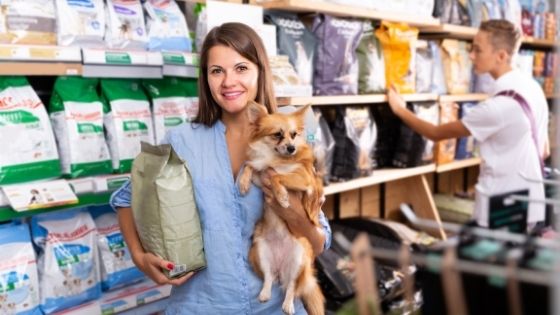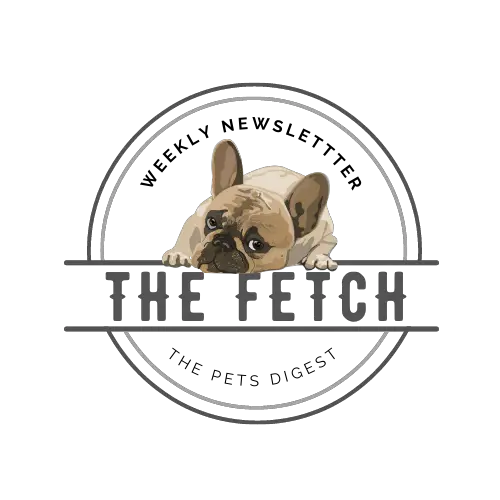Updated July 2023
It is important to stay informed about recent pet food recalls to ensure the safety of your pet.
Keep reading to get the latest information on pet food recalls and tips on how to keep your pet safe and healthy.
Pet food safety is crucial for the health and well-being of your furry friend.
Contaminated or improperly formulated pet food and treats can lead to serious health issues, including food poisoning, and nutritional deficiencies.
It is important to understand the importance of choosing high-quality pet food and staying informed about any recalls or safety alerts.
By taking proactive measures to ensure your pet’s food is safe, you can help protect their health and happiness.
What is a pet food recall?
Pet food recalls are usually done by the FDA through the Food Safety Modernization Act. This can be done by ate request or state order.
A pet food recall or voluntary retrieval (to somehow lessen the blow) is an emergency recall of dog or cat foods due to it being unfit for consumption. This usually occurs when hundreds of dogs or cats become severely ill or die within a short amount of time that have been linked to consuming the same food.
In rare cases pet foods have caused illness or deaths in people as well for example in the 2000’s people with pets who came into contact with contaminated dry dog food contracted Salmonellosis. The FDA currently has a zero
There are times when instead of a recall a market withdrawal will take place per FoodSafteyTech.com
- Market withdrawal: this occurs when there is only a minor violation with a product that is not subject to FDA legal action. In this case, the company can remove the product from stores or make any corrections
- Recall: When a recall takes place the company has no other recourse but the remove the product from the market as FDA legal action is a consideration if this is not done. This can be done via the FDA or voluntarily by the company.
According to the FDA, there are three classes of a pet food recall
Class I: It is probable that the use or exposure to a product will cause serious health consequences or even death
Class II: The use or exposure to the product may cause temporary or medically reversible health consequences
Class III: The use or exposure of the product is not likely to cause adverse health consequences

What are common reasons for a pet food recall?
1. Contamination
By far the most common reason for pet food recalls is contamination. Contaminations by molds like Aflatoxins and bacteria like Salmonella lead the pack, even though the FDA has a zero-tolerance level for Salmonella in pet foods.
There have also been cases of pet food products being recalled for toxic materials like pentobarbital or melamine, which is a white crystalline compound made by heating cyanamide and used in making plastics.
2. Nutritional Imbalances
There will be times when pet foods are recalled due to too much or too little of a nutrient or vitamin.
This occurred when the Wet Noses Natural Dog Treat Company recalled approximately 51,000 packages of Simply Nourish dog food due to elevated levels of vitamin D. Excessive vitamin D can cause symptoms such as loss of appetite, drooling, increased thirst, weight loss, and death.
3. Foreign objects
This is usually due to plastic but can include metals or other materials usually from failed or broken machinery.
4. Improper packaging
If your dog food isn’t packed properly this can lead to all types of issues like excess moisture which can lead to mold. It can also lead to air getting in dry bags of pet food which causes the food to expire before its time.
How do I find out about pet food recalls?
There are several avenues to stay abreast of pet food recalls
- The AVMA keeps a running list of all cat and dog food recalls by brand
- The Dog Food Advisor is also a good place to find out about pet food recalls
- Join our email list here to get weekly updates about pet food recalls
What should I do if there is a recall on my pet’s food?
Find out why the food was recalled and know common symptoms of the cause so you know what to watch for in your pet. As mentioned previously the most common causes are contamination due to mold (mainly Aflatoxin) and bacteria (mainly Salmonella)
- Symptoms of aflatoxin poisoning in dogs and cats may include sluggishness, loss of appetite, vomiting, jaundice (yellow tint to the mucous membranes – eyes and gums), and/or diarrhea. It can be fatal in some cases.
- Dogs and cats that become ill from Salmonella infection generally will have diarrhea that may or may not contain blood or excessive mucus, they may also experience inappetence (not wanting to eat), lethargy, vomiting, and fever.
It is important to take action immediately and seek veterinary care if you suspect that your pet may have been affected by a pet food recall.
If you suspect that your pet may have been affected by a pet food recall or if you notice any concerning symptoms, it is important to take action and seek veterinary care immediately.
Don’t hesitate to reach out to them if you have any concerns or questions. Remember early intervention can make a difference in your pet’s health and well-being.
If you suspect that your pet has eaten contaminated food contact your veterinarian immediately, he or she will most likely contact the FDA if there is an ongoing food recall at the time
Contact the dog’s food manufacturer or take the bag or receipt back to the store. It is the legal duty of the food company to replace or refund any recalled products, you will most likely get a refund from the store.
Dispose of the food, if the store does not take the bag of food back, make sure to dispose of it in such a way that it can not cause harm to other animals. Dispose of any contaminated food by placing it in a heavy opaque or black garbage bag. Close and place the bag in a trash container or bury it in a landfill.

How do I report a pet food complaint?
If you notice that your dog may have suffered from a pet food that was recalled you should report it as soon as possible.
The FDA is the company that investigates pet food complaints. You can report a suspected illness to the pet food company and the FDA electronically through the Safety Reporting Portal or by calling your state’s FDA Consumer Complaint Coordinators. The FDA advises working with your veterinarian to submit your pet’s medical records as part of your report.
If you are wondering what information will be needed you can read what will be helpful to include in your report here.
What happened with the massive dog food recall of grain-free foods?
Currently, there is no definitive answer about the link between grain-free dog foods and DCM in dogs or Dilated Cardiomyopathy. To learn more read our article, the link between grain-free foods and DCM.
How do I protect my pet from unsafe food products?
The truth is that any brand, large or small, can be impacted by a pet food recall or market withdrawal. Accidents occur and mistakes are made but here are some ways you may be able to protect your dog or cat from being part of a pet food recall.
1. Check the label
Check the labels and the ingredients.
When it comes to choosing a pet food, it is important to carefully check the labels and ingredients for quality. Look for natural, high-quality ingredients that are beneficial for your pet’s health.
Avoid products that contain fillers, artificial preservatives, and additives.
Additionally, be aware of any specific dietary needs or allergies your pet may have and choose a food that meets those requirements.
By being diligent about checking labels and ingredients, you can ensure that you are providing your fur baby with the best possible nutrition and minimizing the risk of any potential health issues.
2. Monitor Your Pet
It is critical that you monitor your pet for a change in behavior or signs of health issues when trying new foods. Ensure that they are thriving on the diet and not experiencing any adverse effects from their food.
Keep an eye out for any changes in appetite, coat condition, energy levels, or digestive issues.
If you notice any concerning symptoms, consult with your veterinarian immediately. Remember, your pet’s health is your responsibility, and staying vigilant can help catch any potential issues early on.
3. Stay up to date
Stay up to date on any pet food recalls that may have recently occurred.
You can do this simply by checking websites that alert you to recalls or if you don’t want to do that regularly simply sign up to our email list as we keep an eye on pet food recalls and send you an updated list weekly. You can join here.
Conclusion
It is essential for pet owners to remain up to date on pet food recalls and alerts to ensure the safety of their fur babies. By regularly checking for recalls and alerts you can identify any potential issues with the pet food you are using and take appropriate action.
You can join our weekly email newsletter which gives you up-to-date information about pet food recalls here.
Stay informed and prioritize your pet’s health by staying up to date!

























































































































